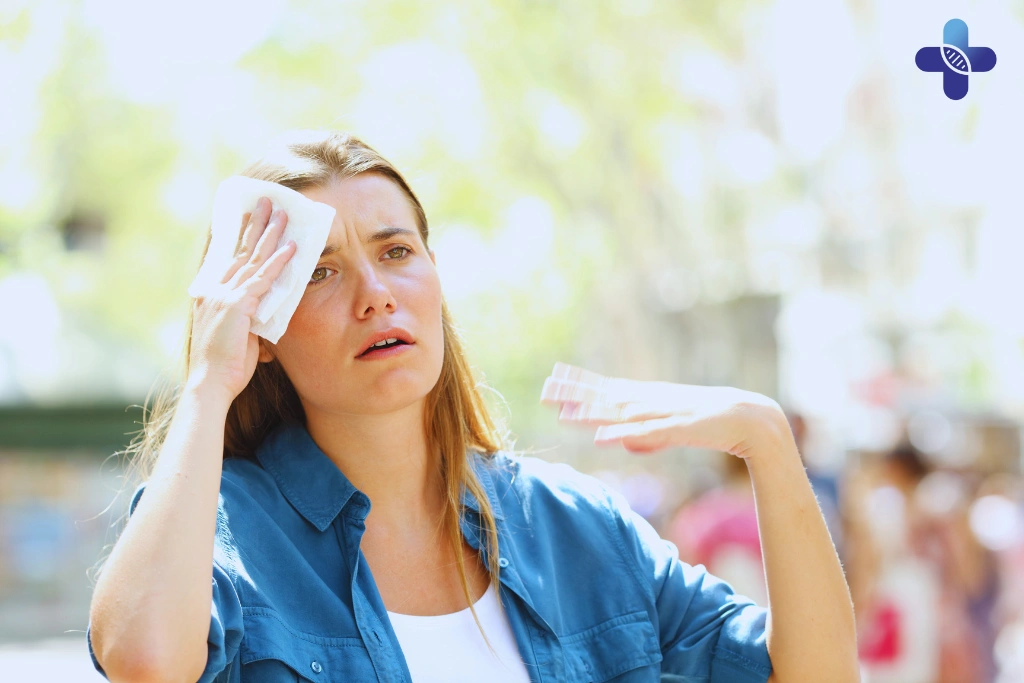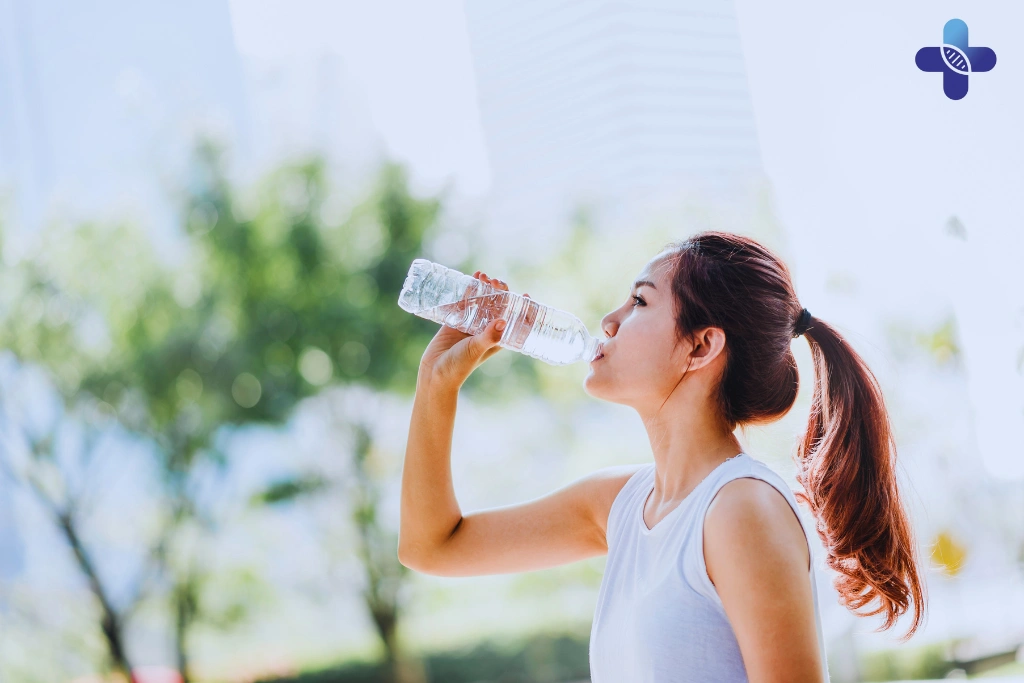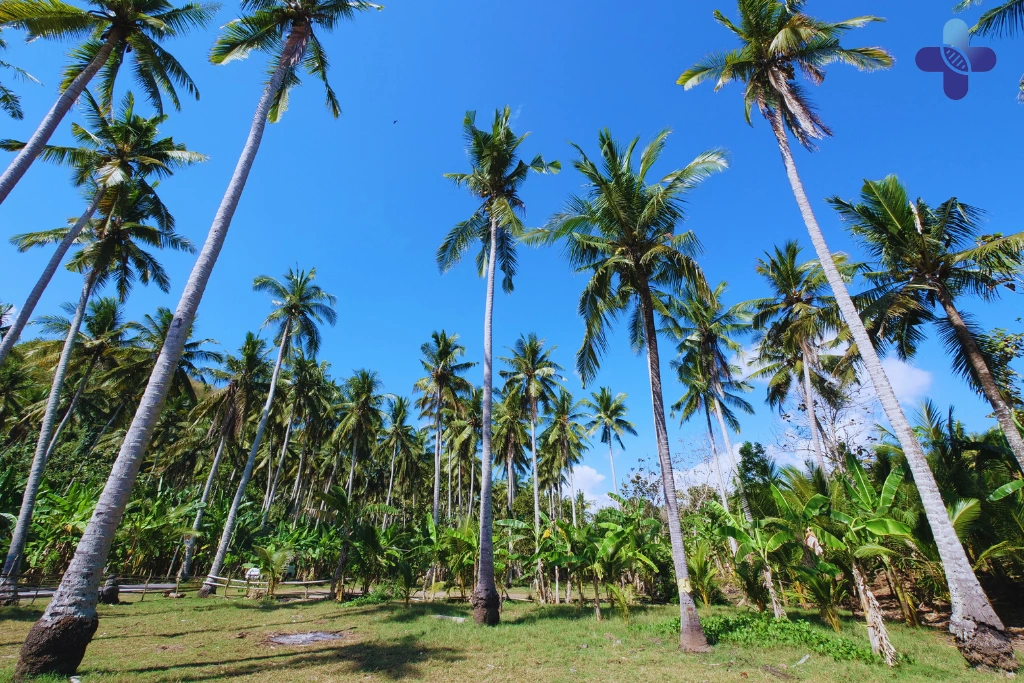Struggling to adjust to Bali’s tropical climate? You’re not alone. The combination of intense sun, high humidity, and warm temperatures can catch even seasoned travelers off guard. In this guide, we’ll show you how to handle Bali heat like a pro—sharing practical, expert-backed tips to help you stay cool, hydrated, and healthy throughout your trip. Whether you’re exploring Ubud or lounging on the beach, Life Everyouth Bali, your trusted Medical Clinic in Bali, is here to support your wellness in the island’s heat.
How to Handle the Bali Heat Like a Pro: A Guide to Staying Cool & Hydrated

Bali’s tropical warmth is part of its charm—but for many travelers, especially those coming from cooler climates, the island’s intense sun and humidity can be surprisingly draining. Your first few days may feel sluggish as your body struggles to adapt to the heat. Symptoms like fatigue, dehydration, and lightheadedness are common if you’re not careful. At Life Everyouth Bali, a leading Medical Clinic in Bali, we often help visitors who underestimate how quickly the tropical climate can affect their health.
That’s why we created this guide—to help you handle Bali heat with confidence and stay fully present for every adventure. With easy-to-follow tips on hydration, clothing, sun exposure, and recovery options, you’ll learn how to keep your body in balance while enjoying the best of what the island has to offer. From Medical Clinic Bali insights to practical travel wisdom, Life Everyouth is here to keep you cool, hydrated, and ready to thrive in the tropics.
Dress for Success: Your Anti-Heat Wardrobe
Choosing the right clothes is one of the simplest yet most effective ways to handle Bali heat. Lightweight, breathable fabrics such as cotton, rayon, or linen allow air to circulate and sweat to evaporate, helping your body stay cool throughout the day. Avoid tight or synthetic materials that trap heat and moisture, which can lead to discomfort or even skin irritation.
Color also matters—light-colored clothing reflects sunlight, while dark tones absorb heat and make you feel hotter. Accessories are just as important: a wide-brimmed hat offers shade, UV-protective sunglasses shield your eyes, and a scarf or sarong can help cover exposed skin during peak sun hours. At Life Everyouth Bali, we remind travelers that a smart wardrobe isn’t just about comfort—it’s a health choice in tropical conditions.
As a trusted Medical Clinic in Bali, Life Everyouth regularly treats visitors suffering from heat-related skin issues and early signs of sunstroke. Proper attire is one of the first things we recommend to anyone adjusting to the Bali heat and humidity. If you’re unsure what to pack or wear, just imagine dressing for long, sunny walks with plenty of airflow—and you’ll be one step ahead.
Timing is Everything: Plan Your Day Around the Sun
The midday sun in Bali can be surprisingly harsh, especially for visitors who aren’t used to intense tropical heat. Between 11 a.m. and 3 p.m., UV radiation peaks and humidity levels often spike, making it the most dangerous time for heat-related illnesses like sunstroke or dehydration. To stay safe, it’s best to schedule outdoor activities—like exploring temples, hiking, or surfing—early in the morning or later in the afternoon when temperatures are lower and the sun is less intense.
During peak hours, prioritize rest and recovery. Enjoy lunch indoors, explore shaded spots, or simply unwind in your villa’s air-conditioned comfort. This intentional pause in the day helps regulate your body’s temperature and energy levels, preventing overexertion. At Life Everyouth Bali, we see many travelers who underestimate the toll of prolonged sun exposure and end up at our Medical Clinic in Bali seeking treatment for avoidable heat-related conditions.
As a leading Bali Medical Clinic, Life Everyouth encourages all tourists to think like locals—pace yourself and follow the rhythm of the island. Respecting the sun’s power not only protects your health but also ensures you have enough energy to enjoy Bali’s beauty from sunrise to sunset.
Hydration Heroes: What to Drink (and What to Avoid)

Water is King
In the Bali heat, your body loses fluid constantly—even when you’re not sweating heavily. Many visitors underestimate how quickly dehydration can sneak up in a humid tropical climate. That’s why the golden rule is: drink water consistently, not just when you feel thirsty. Keep a reusable water bottle with you at all times, and refill it whenever you get the chance. Whether you’re lounging by the pool or hiking in Ubud, regular sips of water help regulate body temperature, prevent dizziness, and support overall circulation. At Life Everyouth Bali, a leading Medical Clinic Bali, we often remind our patients that water is the first and most essential defense against heat exhaustion.
The Power of Coconut Water
Fresh coconut water isn’t just a beachside treat—it’s one of the most effective natural rehydration solutions available in the tropics. Rich in potassium, magnesium, and other electrolytes, coconut water helps restore what your body loses through sweat. Unlike sports drinks that are often packed with sugar and artificial additives, coconut water offers clean hydration with just the right amount of sweetness. You’ll find it sold fresh on nearly every corner of Bali—often straight from the green coconut. At Life Everyouth, your trusted Medical Clinic in Bali, we encourage travelers to choose coconut water daily, especially after prolonged sun exposure or physical activity.
What to Limit
Not all drinks are helpful in the heat. Sugary sodas, sweetened teas, energy drinks, and alcoholic beverages may seem refreshing at first, but they can accelerate dehydration by pulling more fluid from your system. Caffeine, while energizing, can also have a diuretic effect when consumed in large quantities, leading to more frequent urination and greater fluid loss. Alcohol presents a double challenge: it dehydrates and impairs your body’s ability to regulate temperature. At Life Everyouth Bali, we often see heat-related fatigue worsened by these drink choices. As a leading Bali Medical Clinic, we advise this simple rule: balance every dehydrating drink with a glass of water, and prioritize clear, electrolyte-rich options whenever possible.
Listen to Your Body: Recognizing the Signs of Heat Exhaustion
Heat exhaustion is your body’s warning system telling you that it’s overheating and struggling to regulate its temperature. Unlike heat stroke, which can come on suddenly, heat exhaustion builds over time—especially in Bali’s humid and relentless tropical climate. It’s essential to know the warning signs early so you can act before it becomes dangerous. At Life Everyouth Bali, a trusted Medical Clinic in Bali, we regularly treat travelers who ignored these early red flags, thinking it was “just the heat.” Here are key symptoms to watch for:
Excessive sweating
Sweating is your body’s natural cooling mechanism, but when it becomes constant and heavy, it may signal your internal temperature is too high. If you’re sweating more than usual while doing very little, it’s time to slow down. Persistent sweating also leads to a significant loss of electrolytes, which are crucial for nerve and muscle function—a problem we often address with IV therapy at Life Everyouth, your go-to Medical Clinic Bali.
Dizziness or light-headedness
Feeling faint, especially when standing up, indicates your blood pressure may be dropping due to fluid loss. In a hot, humid environment like Bali, this can happen quickly. Dizziness is one of the most common complaints we hear at Life Everyouth Bali, and it often signals the need for immediate rest, hydration, and electrolyte replacement.
Nausea
Nausea is your body’s way of warning that the heat is affecting your internal balance. It can also make drinking water or eating feel difficult, further delaying recovery. If you’re nauseous in the heat, hydration through IV fluids might be more effective than oral intake. At Life Everyouth, we offer fast rehydration solutions at our Bali Medical Clinic to help you recover safely and quickly.
Pale, clammy skin
Contrary to what most people expect, pale or cool skin doesn’t mean you’re okay—it’s a signal your body is struggling. This is especially dangerous if accompanied by a weak pulse or shallow breathing. At Life Everyouth Bali, we treat these symptoms as serious and urge anyone experiencing them to seek care at a nearby Medical Clinic in Bali before it escalates.
Fatigue or weakness
Unusual tiredness or the feeling of being drained even after a light walk or swim could mean your body is overheated and lacking the hydration it needs. Heat-related fatigue tends to worsen throughout the day, especially if you continue activity without breaks. Life Everyouth, a leading Medical Clinic Bali, recommends taking these symptoms as a clear cue to rest, cool down, and rehydrate immediately.
Recognizing these signs early—and acting on them—can make the difference between a day of recovery and a medical emergency. Don’t push through the discomfort. At Life Everyouth Bali, we emphasize that being proactive is the best way to enjoy everything Bali offers, without compromising your health.
When You’ve Overdone It: The Fastest Way to Recover

Sometimes, even with the best intentions and preparations, the Bali heat can still get the better of you. If you’re already experiencing symptoms like dizziness, nausea, or severe fatigue, chances are your body has entered a state of dehydration and electrolyte imbalance. Drinking water at this stage may not be fast or effective enough, especially if you’re also feeling nauseous and can’t keep fluids down. This is where medical-grade hydration becomes essential.
At Life Everyouth Bali, we provide a powerful solution through our IV Drip Therapy—designed specifically for tropical recovery. This treatment delivers a sterile, electrolyte-rich saline solution directly into your bloodstream, bypassing the digestive system for immediate absorption. Within 30 to 60 minutes, most patients report feeling re-energized, clearer-headed, and ready to continue enjoying their trip. Our team at this trusted Medical Clinic in Bali administers IV therapy in a safe, clean environment designed for rapid recovery.
Whether you’ve been out in the sun too long, sweating through a jungle trek, or simply underestimated Bali’s humidity, you don’t have to push through exhaustion. For those needing fast and efficient recovery, explore our IV Drip in Bali—your shortcut to rehydration and feeling like yourself again. At Life Everyouth, your well-being in the tropics is our top priority.
Conclusion How to Handle the Bali Heat: 7 Tips to Stay Cool & Hydrated

Bali’s climate can be intense—but with the right habits, you don’t have to let the heat take away from your experience. Dressing in breathable clothing, avoiding the midday sun, and drinking the right fluids can go a long way in protecting your energy and health. Recognizing early signs of heat exhaustion is just as important as prevention, especially for families with children or older adults more vulnerable to the heat.
If you’ve already overexerted yourself or feel your body is running low, don’t wait until it gets worse. At Life Everyouth Bali, we offer rapid recovery solutions including IV Drip in Bali to help you rehydrate, rebalance, and bounce back fast. As your trusted Medical Clinic in Bali, we’re here to make sure you enjoy every moment of your stay—safely, comfortably, and confidently.
Frequently Asked Question How to Handle the Bali Heat: 7 Tips to Stay Cool & Hydrated
What is the hottest and most humid time of year in Bali?
The hottest months in Bali typically occur between April to May and September to October, when daily temperatures can rise above 32°C (90°F) with strong sun exposure. However, the most humid time is during the wet season—from November to March—when constant moisture in the air makes it feel even hotter. This combination of heat and humidity increases your risk of dehydration, fatigue, and skin irritation. At Life Everyouth Bali, a reliable Medical Clinic in Bali, we often see a spike in heat-related cases during these periods, especially from travelers unfamiliar with the tropical climate.
What is the difference between heat exhaustion and heat stroke?
Heat exhaustion is the body’s early warning sign that it’s struggling to regulate temperature. Symptoms may include profuse sweating, weakness, dizziness, nausea, and headache. If left untreated, it can progress to heat stroke—a serious and life-threatening emergency. Heat stroke involves a sharp rise in body temperature (above 40°C), altered mental state, and even unconsciousness. Unlike exhaustion, heat stroke requires immediate medical attention. At Life Everyouth, a trusted Bali Medical Clinic, we urge visitors to recognize early symptoms and act quickly to avoid escalation.
Is the air conditioning in most hotels effective?
Yes, most hotels, villas, and guesthouses in tourist-friendly areas like Seminyak, Ubud, and Nusa Dua are equipped with AC in bedrooms. However, it’s common for shared living spaces or dining areas to be semi-outdoor or naturally ventilated. This means heat can still accumulate, especially during midday. If you start to feel sluggish, dizzy, or overheated despite AC, it’s a sign to cool down more actively. Life Everyouth Bali, a convenient Medical Clinic in Bali, is available for checkups or IV rehydration if the heat becomes too much to handle.
My room doesn’t have AC. How do I sleep?
Sleeping without air conditioning in Bali is possible, but you need a few smart strategies. Take a cool shower before bed, use a fan for steady airflow, and wear breathable cotton sleepwear. Keeping your bedding light and misting your skin with water can also help lower body temperature. Some travelers even place a cold towel over their forehead. At Life Everyouth, your trusted Medical Clinic Bali, we suggest staying in higher elevation areas like Ubud or Bedugul for naturally cooler nights if AC is a concern.
Are there cooler areas in Bali?
Absolutely. The inland regions such as Bedugul, Kintamani, and Munduk are known for their cooler temperatures, thanks to higher altitudes. These destinations offer fresh mountain air, misty mornings, and significantly lower humidity levels. As a result, visitors staying in these areas often experience fewer heat-related complaints. At Life Everyouth Bali, a reputable Bali Medical Clinic, we frequently recommend these areas for heat-sensitive travelers or families traveling with young children and elderly companions.
I sweat constantly. Am I losing more than water?
Yes—sweating in Bali’s tropical climate doesn’t just deplete water; it also drains essential minerals like sodium, potassium, and magnesium. These electrolytes are crucial for muscle function, nerve signaling, and hydration balance. If you’re sweating heavily for hours, drinking plain water alone may not be enough to restore equilibrium. That’s why Life Everyouth, a top-rated Medical Clinic in Bali, often recommends coconut water, oral rehydration salts, or professional IV Drip Therapy to replace both fluids and electrolytes effectively.
Can I get sunburn on a cloudy day in Bali?
Definitely. Up to 80% of UV rays can penetrate cloud cover, meaning sunburn is still very possible even when the sky looks overcast. Tourists often get burned during cloudy beach days because they let their guard down. Sunscreen with broad-spectrum SPF 30+ should be worn every day, reapplied every 2–3 hours, especially after swimming or sweating. At Life Everyouth Bali, our Medical Clinic in Bali regularly treats sunburn-related skin damage—many of which occurred under “harmless-looking” skies.
Is coconut water from street stalls safe?
In most cases, yes—especially when you see the vendor cut open the green coconut in front of you. Fresh young coconuts in Bali are usually clean, hydrating, and full of natural electrolytes. Avoid pre-packaged coconut water in plastic bags or bottles with unclear storage. At Life Everyouth, a trusted Medical Clinic Bali, we even encourage daily coconut water intake for travelers needing a natural boost after sun exposure or outdoor activities.
How does an IV drip help with heat exhaustion?
An IV drip delivers a sterile saline solution enriched with electrolytes directly into your bloodstream, bypassing your digestive system. This method allows rapid absorption, making it ideal for those feeling nauseous or severely fatigued. Recovery is much faster compared to drinking fluids alone. At Life Everyouth Bali, many travelers seek our IV Drip in Bali service after intense sun exposure, beach activities, or jungle hikes. As a leading Bali Medical Clinic, we tailor each IV formula to your specific hydration and recovery needs.
Are kids more sensitive to the heat?
Yes, children are more vulnerable to dehydration and overheating due to their smaller body mass and faster metabolic rate. They may not recognize when they’re overheating or thirsty, which makes proactive hydration essential. Keep them in shaded areas during peak sun hours, dress them in light clothing, and encourage regular water intake—even if they say they’re not thirsty. If signs of fatigue, flushed skin, or irritability appear, seek medical advice. Life Everyouth Bali, a trusted Medical Clinic in Bali, is well-equipped to care for pediatric patients with heat-related symptoms.
